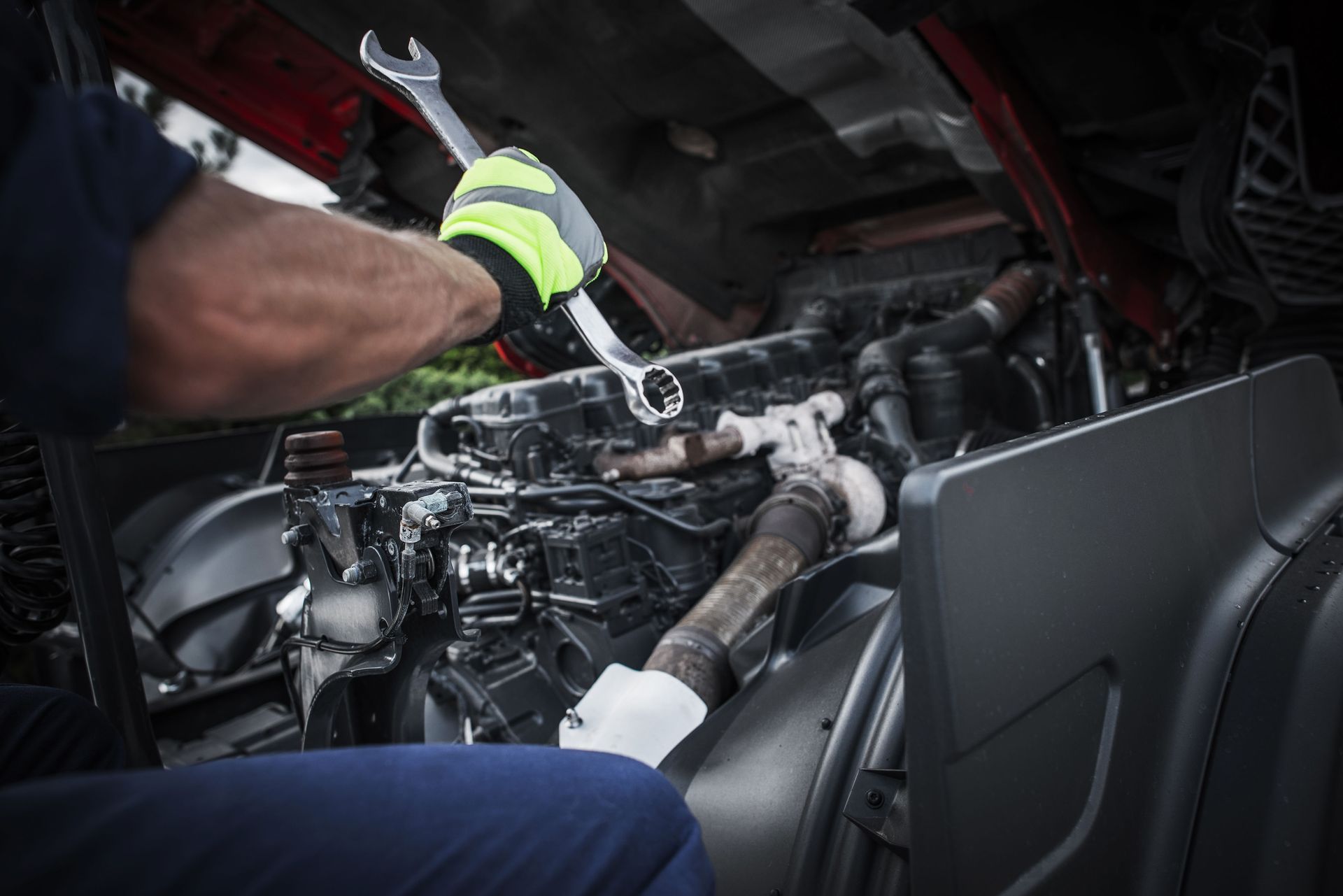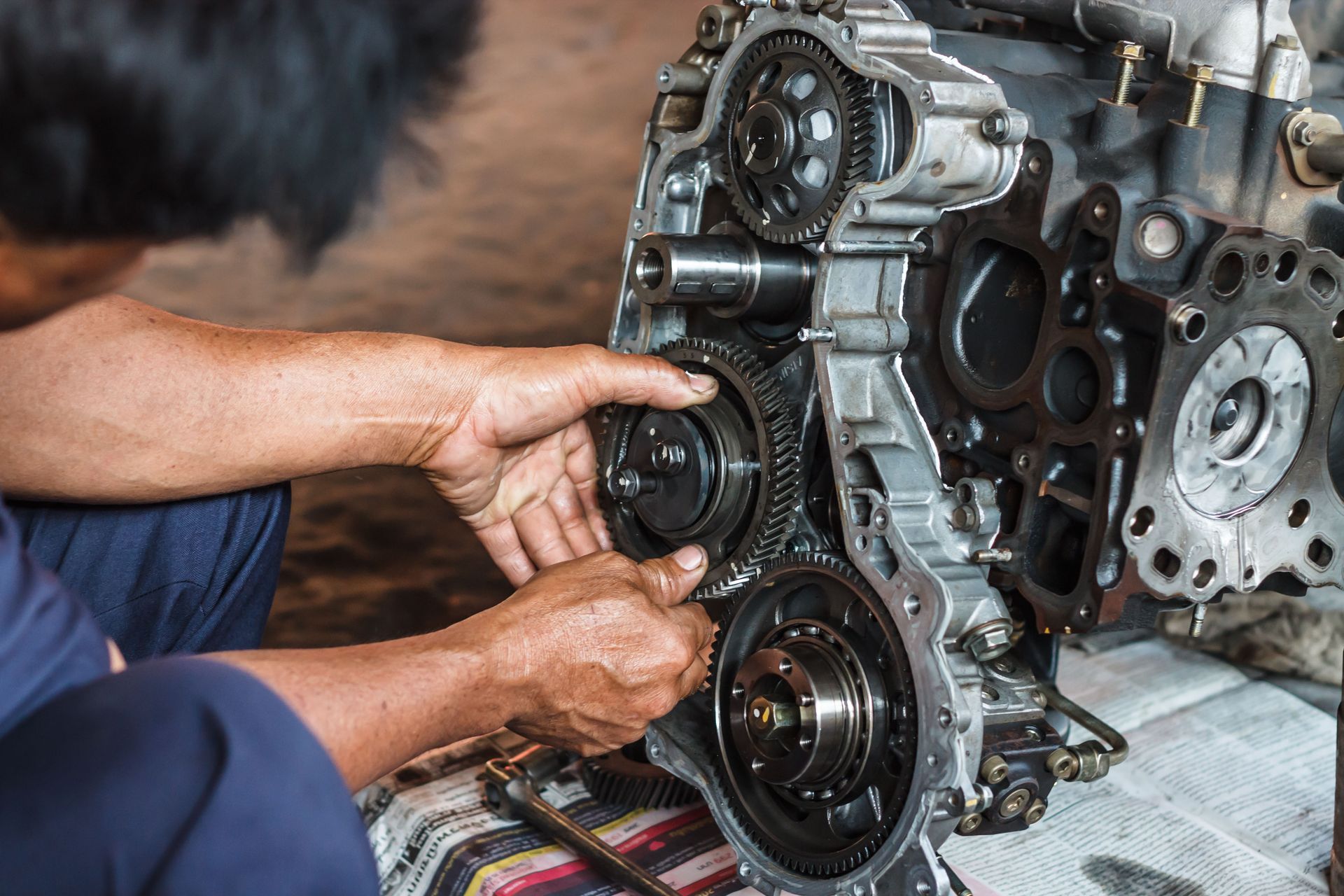September 2, 2025
The trucking industry keeps America moving, but keeping those massive vehicles in top condition is no small task. From everyday maintenance to diagnosing complex issues, semi-trucks demand careful attention to ensure safety, efficiency, and longevity. By understanding the essential mechanics, common problems, and strategies for improving fuel efficiency, drivers and fleet owners can cut costs and minimize downtime. According to Geotab, the average annual mileage for trucks is 9,800 miles, underscoring the need for a proactive approach to service and upkeep.
Understand Essential Components of a Semi-Truck
Semi-trucks are intricate machines built from interdependent systems, each contributing to safe and efficient performance. The engine, transmission, braking system, and axles form the backbone of the vehicle, while electrical systems power critical operations such as lighting, diagnostics, and communication. For drivers, knowing these components is more than technical trivia—it’s a way to recognize issues early and avoid costly breakdowns. Preventing major truck repair often starts with small inspections and routine maintenance of these core parts.
The engine is the heart of the truck, converting fuel into the mechanical power needed to move tens of thousands of pounds. Transmission systems channel that power to the wheels, while brakes ensure the truck can stop safely in all conditions. Meanwhile, alternators, batteries, and wiring keep the electrical system functioning, supporting both safety and comfort. Neglecting any of these components creates a ripple effect that can lead to significant expenses.
Maintain and Update Electronic Systems
Electronics now dominate many aspects of trucking, from fuel monitoring to safety features like ABS and lane-keeping assist. These systems not only improve driver safety but also make diagnostics more precise. With telematics and GPS, fleet managers can track vehicle behavior in real time, helping identify issues before they become emergencies.
Keeping these systems in good condition requires regular software updates and inspections. Outdated or malfunctioning electronics can cause inefficiencies and even safety hazards. For example, a faulty sensor might reduce fuel economy or prevent a warning system from alerting the driver in time. Regular updates help ensure the full benefits of advanced technologies are realized, reducing reliance on costly emergency truck repair. These systems are so interconnected that diagnosing faults can be challenging. In most cases, professional technicians are required to handle repairs effectively.
Address Common Mechanical Issues Early
Like any vehicle, semi-trucks face predictable issues that must be managed proactively. Brake wear, engine problems, and suspension issues are among the most frequent. Brake problems can develop quickly under the extreme loads trucks carry, leading to longer stopping distances. Similarly, engine inefficiencies caused by turbocharger or injector problems can lead to steep repair costs if ignored.
Transmission failures are another common headache. Worn clutches or synchronizers can lead to expensive service needs. When neglected, suspension systems affect ride quality and cause premature tire wear. Even small electrical issues, such as failing alternators, can take a truck off the road at the worst possible time. Vigilance is essential. Spotting the early signs of these issues—odd noises, reduced power, or uneven tire wear—makes the difference between a quick fix and an expensive, time-consuming truck repair.
Follow a Routine Maintenance Schedule
Routine maintenance forms the backbone of efficient trucking operations. Oil changes, tire alignments, fluid checks, and brake inspections prevent many issues before they start. Filters, belts, and hoses should be inspected frequently, as these seemingly minor components often cause bigger breakdowns when they fail.
Air filters, for example, affect fuel efficiency by ensuring the proper air-fuel mixture. Similarly, brake fluid checks can prevent dangerous malfunctions. Regular battery testing reduces the chance of sudden electrical failure. This kind of structured, proactive care reduces downtime, protects drivers, and preserves fuel efficiency. Preventive maintenance also allows for the early detection of wear-and-tear items like bushings, bearings, and shocks. By identifying small issues before they escalate, drivers can reduce the need for major truck repair later down the road.
Diagnose Engine Problems Effectively
Engine diagnostics play a critical role in reducing downtime and extending a truck’s lifespan. Warning signs like smoke, power loss, or unusual noises should never be ignored. Modern semi-trucks come equipped with advanced diagnostic systems that provide real-time feedback, helping both drivers and technicians pinpoint issues.
Technicians use specialized equipment to assess various systems. Early intervention can often restore performance without the need for expensive overhauls. Ignoring symptoms, however, risks catastrophic engine damage, leading to long periods off the road and major expenses. By pairing regular driver vigilance with professional diagnostic services, fleets can minimize risks and maintain consistent efficiency. This proactive approach is essential for any trucking operation looking to manage costs effectively.
Choose the Right Repair Shop
Selecting the right shop is one of the most important decisions for drivers and fleet managers. A strong repair partner should employ certified technicians, use quality parts, and offer transparent pricing. Reviews and recommendations can provide valuable insights into a shop’s reputation. Location is another key factor. Shops near major routes or with mobile repair services reduce downtime. A repair shop that prioritizes efficiency and honesty ensures drivers get back on the road quickly without sacrificing performance. Given the complexity of modern vehicles, working with professionals is often the safest route. For trucks covering a lot of miles each year, reliable truck repair is not optional; it’s essential for operational success.
Weigh DIY Repairs Against Professional Services
Some drivers may feel comfortable handling basic fixes themselves, but it also carries risks. Without the right tools or expertise, mistakes can make problems worse. Professional services offer specialized knowledge and advanced equipment to help diagnose issues. While the upfront cost may be higher, the long-term savings and reduced downtime usually outweigh the initial expense. For complex systems, especially electronics, professional truck repair is almost always the right call.
Implement Preventive Measures for Fewer Repairs
Preventive practices can dramatically reduce the frequency and cost of repairs. Pre-trip inspections help drivers catch problems before they cause breakdowns. Using quality parts during maintenance also extends the life of critical systems. Driver habits play a major role, too. Smooth acceleration, controlled braking, and efficient driving techniques reduce stress on the drivetrain, brakes, and suspension. Over time, these practices lower costs and reduce the need for emergency service. A proactive approach ensures fewer breakdowns, better fuel efficiency, and more predictable operating costs.
Improve Fuel Efficiency With Smart Practices
Fuel efficiency is central to profitability in trucking. Aerodynamics, tire maintenance, and weight management all play significant roles. Roof fairings, side skirts, and other aerodynamic add-ons can reduce drag and save thousands of dollars annually in fuel. Tire selection is equally critical. Proper inflation, alignment, and rotation improve fuel economy while extending tire life. Even small lapses in maintenance can increase drag and fuel usage. Driver training also contributes. Avoiding excessive idling, reducing speed, and maintaining steady driving patterns all support efficiency goals. Combined, these strategies lower costs and reduce emissions, creating a more sustainable and competitive operation.
The trucking industry demands resilience. So much of that resilience comes from consistent care. Whether through routine maintenance, preventive strategies, or smart driving practices, drivers who understand their trucks keep operations running smoothly.
For drivers and fleet owners in Tennessee, reliable service makes all the difference. Hometown Truck and Trailer Repair provides heavy truck and semi-truck repair, along with trailer repair, to keep you on the road. Serving Lebanon, Murfreesboro, Smithville, TN, and surrounding areas, we offer same-day free estimates to help you plan confidently. With a commitment to dependable solutions, transparent service, and customer care, we ensure every
truck repair is handled quickly and effectively. Contact Hometown Truck and Trailer Repair today to schedule your service and keep your fleet running strong.


